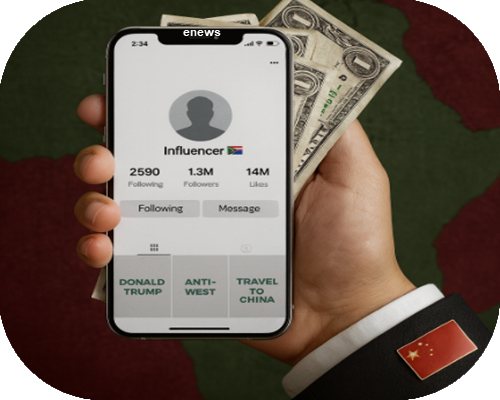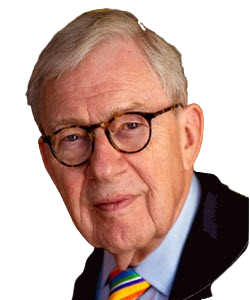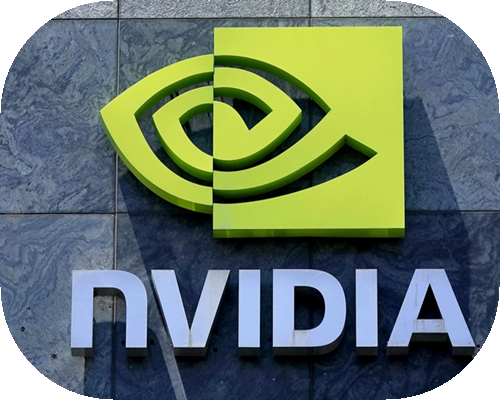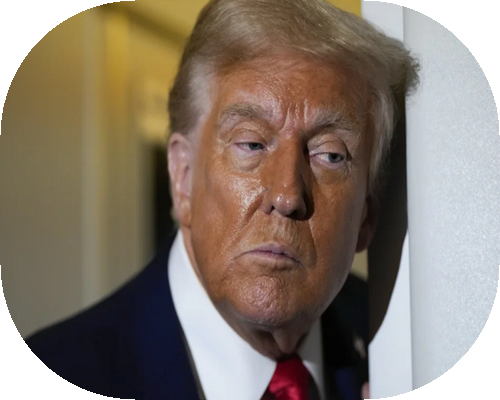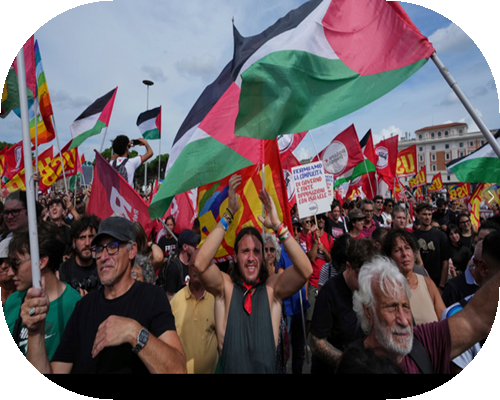Chinese and Russian agents are paying social media influencers in Africa to spread anti-U.S. messages worldwide, with the Trump administration being a top target, media experts say.
Their research reveals that many influencers who use the TikTok platform are earning hundreds to thousands of dollars per month by disseminating misinformation, disinformation, and propaganda that benefits Beijing and Moscow.
The studies align with information presented to Congress on July 22 by U.S. President Donald Trump’s nominee to lead the U.S. military in Africa.
Analysts say China, Russia, and other malign actors are taking advantage of an information void created by the White House’s decision to cut financial aid to Africa, which has impacted the funding of media previously supported by the U.S. government.
In 2024, the Washington-based Africa Center for Strategic Studies documented nearly 200 pro-Kremlin and pro-China social media campaigns in each major region of Africa, with the Chinese regime’s influencers particularly active in Southern and West Africa.
One of Africa’s most popular social media figures has told The Epoch Times she’s receiving money to distribute information that makes Russia and China “happy.”
“This is mostly messages about Trump,” she said, asking that her name be withheld so that she didn’t “anger” her employers and lose income.
She said influencers working for Moscow and Beijing receive payments online via sites that facilitate paid promotions, with South Africa’s Lit marketplace one of the more popular systems.
“The money we’re making like this can be a few thousand dollars every month; it all depends on how popular our posts turn out,” she said.
The influencer said she’d never spoken to her benefactors.
“I can’t tell you if they’re Chinese or Russian or even from Mars. They send me data, and I work it up into segments, and then I post it. If they like what I post, they pay me,” she explained.
“It’s not difficult work because their sentiments fall in with the pan-African philosophy that I have, and I am also a strong supporter of socialism and an opponent of Western imperialism.
“I think that’s why I was recruited, so to speak. I can say the same for many other influencers.”
An investigation by Karen Allen, a consultant at South Africa’s Institute for Security Studies, has also found that key figures in Africa’s influence industry are being paid to engage in what she called “transnational coordinated campaigns,” partly aimed at undermining Western initiatives and leaders.
Part of Allen’s report focused on a South African influencer who said Russian agents paid him to amplify narratives aimed at “destabilizing” South Africa during the country’s 2024 election.
This influencer acknowledged being paid for material that benefited candidates who were pro-China and pro-Russia, and for posts that denigrated Western-leaning parties.
The influencer said he was provided with “pre-packaged material” and paid almost $3 every time one of his posts was “liked.”
Professor Herman Wasserman, who leads the journalism and media studies department at South Africa’s Stellenbosch University, is another expert who’s exposed the use of paid influencers in Africa.
He told The Epoch Times that several “malign actors,” primarily China and Russia, are rewarding African social media “celebrities” to “distribute whatever misinformation, disinformation, or legitimate information they consider to be in their interests” at a particular time.
Wasserman said Trump is a “big target.”
“Trump leads as enemy No. 1 of China and Russia. And let’s face it, he’s giving the whole world a lot to talk about,” he said. “It’s not hard to make videos about Trump.”
Wasserman said certain influencers in Africa were “suddenly very active all at once” when Trump recently complimented the president of Liberia for his command of the English language, which is the country’s official language, during a meeting at the White House.
“They had a field day,” Wasserman said, referring to how Trump was portrayed for his comments.
“A lot of the material was on TikTok.”
In a report released in June, the Reuters Institute at Oxford University in the United Kingdom found that TikTok is the leading source of misinformation and disinformation in Africa, a continent where Beijing is exerting more control over politics, business, and public opinion.
According to the report, Africa is home to three countries that are among those with the most TikTok users, namely Kenya, Nigeria, and South Africa. These are also three of Africa’s largest economies, with China investing billions of dollars in them.
As China’s influence expands in Africa, said Wasserman, so, too, does TikTok, with “profound” impacts on African lives, because the information they digest is “designed to change how they view world events and, more importantly, how they view China.”
The influencer who spoke anonymously said she’s often paid to post information that portrays China as a “victim of Western racism” and for material that “paints a picture of the corrupt West and how full of hypocrisy it is.”
This tallies with research recently completed by academics at the London School of Economics and Political Science, Duke Kunshan University in China, and the Gustave Eiffel University in France.
They propose that there are “four frames” used by influencers to defend or promote communist China.
“Western Hypocrisy” accuses the West of double standards; “Western Threat” presents the West as a major threat to global security and growth; “System Superiority” promotes the Chinese regime’s political model ahead of Western models; and “Common Destiny” envisions a prosperous future shared by communist China’s global partners.
“We argue that although the political affiliations of these influencers remain ambiguous and difficult to determine, they have become de facto contributors to China’s quest for global reputation in a digital age,” the experts write.
Wasserman said he agrees with the findings.
“It’s exactly what I’m seeing spread by these influencers; anything from being violently anti-America to your more benign ‘China-is-a-great-place for a holiday’ kind of thing,” he said.
Hamza Ibrahim, a media researcher and disinformation analyst in Nigeria, said the influencers prefer to use TikTok because they see it as a “safe haven.” They believe that because the platform is owned by a Chinese company, and assuming their handlers are also Chinese, they feel free to express pro-China views and create content on the platform, he explained.
“In Africa, it’s widely accepted that TikTok is a Chinese company that operates with the blessing of the Chinese government, and people don’t seem to mind that at all,” Ibrahim told The Epoch Times.
ByteDance, the Beijing-based company that owns TikTok, has denied that the Chinese regime has control over it.
Meanwhile, Human Rights Watch (HRW) is one of many groups that are skeptical of TikTok’s independence.
In a statement in 2023, HRW said that while the platform is officially a private enterprise, “refusing control from the Chinese government might not be a safe option for the company’s China-based executives, given the government’s track record of punishing the country’s business executives for not toeing the party line.”
In 2022, a study by the Mozilla Foundation found that TikTok was used to spread hate speech more than any other platform ahead of that year’s election in Kenya, which, like others in the country, was marred by ethnic violence.
“While more mature platforms like Facebook and Twitter receive the most scrutiny in this regard, TikTok has largely gone under-scrutinized — despite hosting some of the most dramatic disinformation campaigns,” the foundation said in its report.
TikTok says on its website it has “developed tools and technology to identify and remove harmful content and behaviour.”
“These tools help us advance the safety of our community and maintain the integrity of our platform,” according to the guidelines.
“Additionally, we hold creators who monetize or otherwise take advantage of our platform to promote themselves to a higher bar.
“We expect creators on TikTok to follow our creator code of conduct and behave in a manner that does not jeopardize the safety of others or the integrity of our platform.”
Ibrahim said, however, that TikTok’s measures often do not extend to misinformation, disinformation, and “blatant lies.”
“We’ve also seen in countries like Kenya that hate speech spreads like wildfire on TikTok and other platforms, with moderators very slow to remove hateful posts,” he noted.
In the past, the U.S. government funded Voice of America (VOA) radio and television, which Ibrahim said did “a great job” countering narratives driven by Beijing and Moscow.
“They had a bureau in Washington focused exclusively on fact-checking, and they debunked disinformation and misinformation every day,” he said.
The Trump administration canceled most of VOA’s funding in March, accusing the agency of being a mouthpiece of “radical propaganda,” a “burden to the American taxpayer,” and a haven for “terrorist sympathizers.”
In April, U.S. Secretary of State Marco Rubio also closed the Washington agency that had monitored foreign disinformation campaigns, the Counter Foreign Information Manipulation and Interference hub, accusing it of censoring Americans.
“Under the previous administration, this office, which cost taxpayers more than $50 million per year, spent millions of dollars to actively silence and censor the voices of Americans they were supposed to be serving,” Rubio said in a statement announcing the move.
Rubio also said during an April interview with influencer Mike Benz that after the office’s closure, the U.S. government will continue to protect free speech and fund “pro-American messaging.”
“We are going to spend money on messaging; it’s going to be pro-American messaging, and it’s going to be incentivizing and protecting free speech, which is threatened all over the world, including countries that are allies of ours,” he said.
“The best way to counter disinformation is free speech, is to make sure that what’s true has as equal or greater opportunity to communicate as what’s not true.”
The Epoch Times reached out to the State Department for comment and did not receive a response by publication time.
In his testimony during a hearing before the Senate Armed Services Committee in Washington on July 22, U.S. Air Force Lt. Gen. Dagvin Anderson—who is being considered for promotion to general and commander of U.S. Africa Command—said Africa is increasingly at the convergence of great-power rivalry and terrorism.
This, he suggested, is because Africa is strategically positioned between the Atlantic Ocean and the Indo-Pacific region.
“China is expanding its approach from a focus on economic influence to greater military and information operations” in Africa and spreading communist propaganda, he said, describing the situation as “troubling.”
It is indeed cause for great concern, said Wasserman, and he added that the United States “doesn’t seem to be doing much about it.”
He said he believes there’s currently an “info-void” in Africa that China and Russia are exploiting.
“They’re putting billions of dollars into media funding in Africa, including dodgy social media campaigns, while the United States seems to be relying on a dwindling number of American embassies and one office in Johannesburg to get its messaging out,” Wasserman said. “It’s nowhere near enough to counter the lies and propaganda being spread by anti-Western voices.”
How useful was this article ?
Click on a star to rate it!
Average rating 5 / 5. Vote count: 2
No votes so far! Be the first to rate this post.
We are sorry that this post was not too useful for you!
Let us improve this post!
Tell us how we can improve this post?


